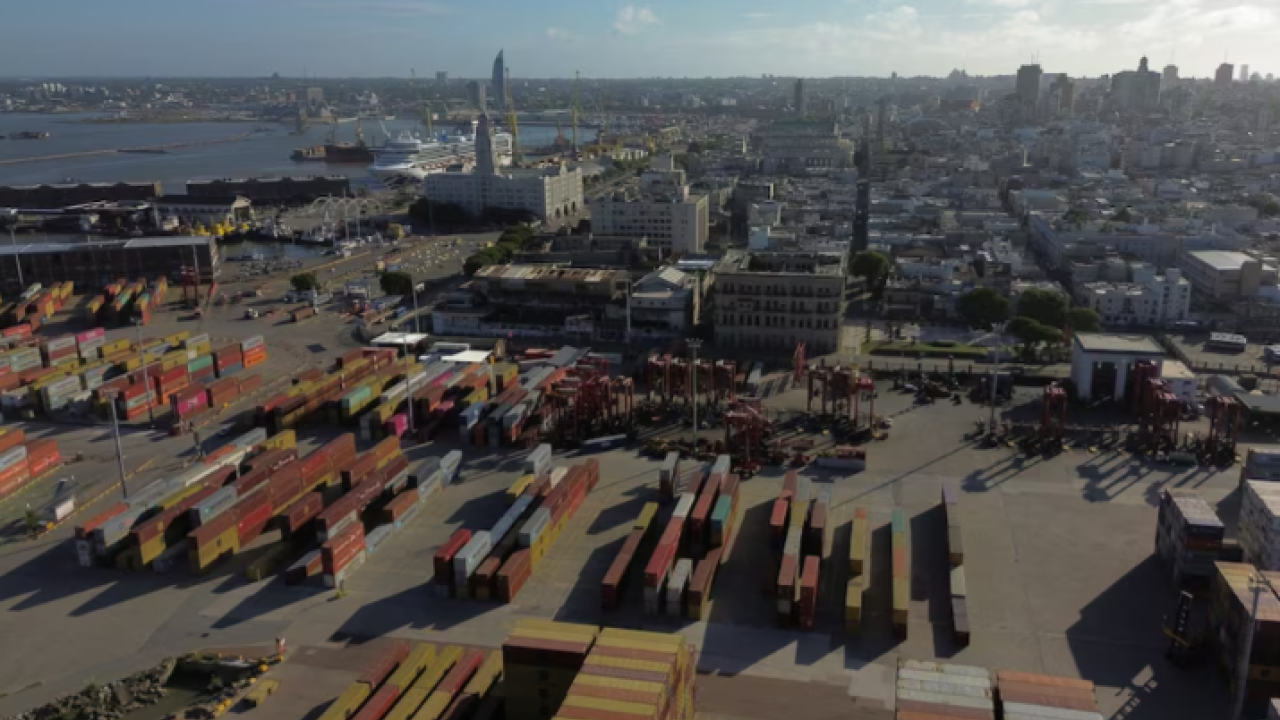
The National Port Administration of Uruguay (ANP) has drawn up new regulations and repealed the previous ones.
The port authorities of Montevideo approved new regulations for the docking of ships in the port of the Uruguayan capital, which are now awaiting promulgation by the Executive Branch. The text maintains the priority that it had given to Terminal Cuenca del Plata (TCP) three years ago.
In 2021, the government signed an agreement with Katoen Natie to extend the TCP concession (majority owned by the Belgian company with state participation) until 2081. Two additional decrees were drawn up: one establishing the extension of the concession and another granting the company priority berthing for cargo ships.
One of the texts established that the ANP must prioritize the docking of ships and container barges at the specialized terminal and may only move the vessels to the public docks if TCP is occupied during the following 24 hours.
The priority given sparked criticism from Montecon, the terminal's main competitor and which operates containers in public areas of the port of Montevideo. The company presented itself before the Commission for the Defense of Competition to denounce anti-competitive practices in the port of Montevideo, blaming the ANP, the Ministry of Transport (MTOP), Katoen Natie and TCP.
However, the actions were rejected by the Ministry of Economy (MEF) on the grounds that port activity was an activity of general interest, related to the development of the country and, therefore, decisions in this regard should be taken by the Executive Branch.
In parallel, the two shareholders of Montecon - the Canadian ATCO and the Chilean Neltume Ports - filed arbitration against the Uruguayan State earlier this year before the International Centre for Settlement of Investment Disputes (ICSID) of the World Bank.
The lawsuits are based on the fact that the TCP extension agreement violates the investment treaties that Uruguay has signed with Canada and Chile. The actions are for approximately US$ 900 million.
Prior to the extension of the concession, Montecon and TCP shared - practically equally - all the operations of loading and unloading containers. During the previous years, the annoyance had been on the other side: Katoen Natie claimed that its competitor acted as a container terminal, but working in public areas of the port and without having made large investments.
The Belgian multinational had even informed the previous government that it would also resort to ICSID, this time with an arbitration for US$ 1.5 billion. The intention was left behind when the contract extension was finalized.
Months ago, port authorities began drafting new docking regulations for the port of Montevideo. The text was approved by the Board of Directors of the ANP and the MTOP. It now awaits promulgation by the Presidency.
The new regulations maintain unchanged the authority to grant priority berthing to ships and barges with containers to TCP. It also allows them to be sent to multipurpose docks in case the specialized terminal has no space.
According to El Observador , the content of the document was accepted by the Navigation Centre (Cennave). The board of directors of the centre includes representatives from TCP and Montecon.
PREVIOUS REGULATION VOID
In September 2021, the ANP Board of Directors approved the decree that regulated the docking priority. Through a resolution, it indicated that every 90 days it would prioritize an additional service (of containers) as long as the specialized terminal was available to receive it.
Two months ago, TCP informed the ANP - through a letter addressed to the president, Juan Curbelo - that there would be no changes in the availability of docks "until the new berthing position under construction within the specialized container terminal is operational."
"For the purposes of proper compliance with the docking regulations, we inform the ANP that we are not available to serve vessels of the services that are currently being provided at public docks," he added.
An ANP resolution issued on Tuesday stated that the 2021 protocol had been drawn up with the aim of “reaching a point of equilibrium where the occupation of the specialized terminal was adequate for its current infrastructure.”
He explained that the gradual operation proposed in the protocol was related to the “progressive and orderly migration to TCP of the services that operate in public docks.”
Despite this, it took into account the lack of availability of the container terminal to absorb new services until its operational capacity was increased and then decided to revoke the resolution that had granted priority berthing to TCP.









